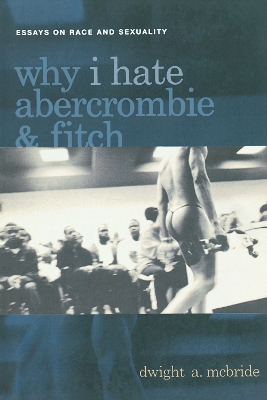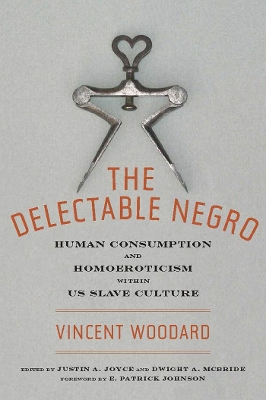Sexual Cultures
2 total works
Reflections on the ways discriminatory hiring practices and racist ad campaigns seep into American life
Why hate Abercrombie? In a world rife with human cruelty and oppression, why waste your scorn on a popular clothing retailer? The rationale, Dwight A. McBride argues, lies in “the banality of evil,” or the quiet way discriminatory hiring practices and racist ad campaigns seep into and reflect malevolent undertones in American culture.
McBride maintains that issues of race and sexuality are often subtle and always messy, and his compelling new book does not offer simple answers. Instead, in a collection of essays about such diverse topics as biased marketing strategies, black gay media representations, the role of African American studies in higher education, gay personal ads, and pornography, he offers the evolving insights of one black gay male scholar.
As adept at analyzing affirmative action as dissecting Queer Eye for the Straight Guy, McBride employs a range of academic, journalistic, and autobiographical writing styles. Each chapter speaks a version of the truth about black gay male life, African American studies, and the black community. Original and astute, Why I Hate Abercrombie & Fitch is a powerful vision of a rapidly changing social landscape.
Winner of the 2015 LGBT Studies Award presented by the Lambda Literary Foundation
Unearths connections between homoeroticism, cannibalism, and cultures of consumption in the context of American literature and US slave culture that has largely been ignored until now
Scholars of US and transatlantic slavery have largely ignored or dismissed accusations that Black Americans were cannibalized. Vincent Woodard takes the enslaved person’s claims of human consumption seriously, focusing on both the literal starvation of the slave and the tropes of cannibalism on the part of the slaveholder, and further draws attention to the ways in which Blacks experienced their consumption as a fundamentally homoerotic occurrence. The Delectable Negro explores these connections between homoeroticism, cannibalism, and cultures of consumption in the context of American literature and US slave culture.
Utilizing many staples of African American literature and culture, such as the slave narratives of Olaudah Equiano, Harriet Jacobs, and Frederick Douglass, as well as other less circulated materials like James L. Smith’s slave narrative, runaway slave advertisements, and numerous articles from Black newspapers published in the nineteenth century, Woodard traces the racial assumptions, political aspirations, gender codes, and philosophical frameworks that dictated both European and white American arousal towards Black males and hunger for Black male flesh. Woodard uses these texts to unpack how slaves struggled not only against social consumption, but also against endemic mechanisms of starvation and hunger designed to break them. He concludes with an examination of the controversial chain gang oral sex scene in Toni Morrison’s Beloved, suggesting that even at the end of the twentieth and beginning of the twenty-first century, we are still at a loss for language with which to describe Black male hunger within a plantation culture of consumption.

